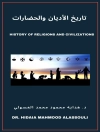Julian of Norwich’s ‚Revelations of Divine Love‘ is a seminal work of Christian mysticism that explores themes of love, suffering, and the nature of God. Written in the 14th century, Julian’s unique literary style blends poetic imagery with theological insights, making it a profound and contemplative read. Set in the context of the Black Death and societal upheaval, Julian’s text offers readers a comforting message of God’s unwavering love amidst uncertainty and fear. The book’s message is as relevant today as it was centuries ago, making it a timeless piece of spiritual literature. Julian of Norwich, an anchoress and mystic, penned ‚Revelations of Divine Love‘ after experiencing a series of visions of Christ. Her profound encounters with the divine inspired her to write about the deep mysteries of faith and love, making her one of the most important spiritual writers of the Middle Ages. Julian’s personal experiences and theological insights shine through in her writing, offering readers a glimpse into the inner workings of a mystic’s mind. I highly recommend ‚Revelations of Divine Love‘ to anyone interested in exploring Christian mysticism or seeking a deeper understanding of God’s love. Julian of Norwich’s timeless wisdom and profound insights will leave readers contemplating the divine mysteries long after finishing the book.
Über den Autor
Julian of Norwich, a 14th-century English mystic, holds the distinction of being one of the most preeminent theologians of her time, whose literary work has earned a revered place in spiritual literature. Not much about her life is concretely known, but it is believed that she was born around 1342 and lived through the turmoil of the Black Death and the Peasants‘ Revolt. Her seminal work, ‚Revelations of Divine Love‘, is considered the first book in the English language known to have been written by a woman. This text is an account of sixteen mystical visions she received during a grave illness when she was thirty years old, believed to be in May 1373. Julian’s meditations on these revelations are deeply rooted in her unwavering faith and her perception of God’s all-encompassing love. This exceptional literary piece is not merely a record of mystical encounters; it stands as a profound reflection on the nature of faith, the problem of evil, and the omnipresence of divine love. Her writing is characterized by its compassionate tone and innovative theology, famously coining the assurance that ‚All shall be well, and all shall be well, and all manner of thing shall be well.‘ Julian’s contemplative and hopeful messages, combined with her eloquent and thoughtful prose, continue to inspire and comfort readers to this day, reflecting her enduring influence on Christian spirituality and mysticism.




